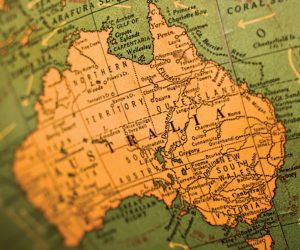Australian Gambling: From Problem to Solution – News from Manipur – Imphal Times

- by Admin
- April 13, 2024

Gambling is an integral part of Australian culture. But behind the facade of legal betting platforms there is a shadow side – gambling addiction. The pathological attraction to entertainment undermines people’s well-being, damaging both individuals and society as a whole.
Deepening the Problem of Gambling Addiction in Australia
According to https://zenogym.com, gambling addiction is a serious social problem that affects millions of Australians. This is indicated by disappointing statistics regarding the social and financial impact.
Gamesomania statistics
Around 1.2 million Australian adults have gambling-related difficulties. Of these, 400,000 need help from trained professionals.
Every year around 400 people die due to problems caused by gambling addiction. Over 2.5 million people are at risk. Of concern is the high rate of gambling addicts among children and adolescents aged 12 to 17 years, who account for 13% of all gambling addicts.
Financial Losses
Gambling is costing the Australian economy dearly, approximately A$23.5 billion a year:
- The average gamer spends A$13,000 a year on entertainment;
- Approximately 60 per cent have large debts;
- At least 1/3 take out loans to play the game;
- About 20 per cent resort to stealing money for betting.
Social Implications
Gambling addiction has a negative impact on quality of life and social connections:
- About 50 per cent of those with addictions divorce and 70 per cent of their children suffer from psychological problems;
- At least 30 per cent of gamblers lose their jobs and 40 per cent have low productivity;
- 80 per cent of addicts suffer from depression, with 20 per cent having suicidal thoughts.
Gambling addiction puts pressure on law enforcement and the health care system. According to statistics, 30 per cent of people with addictions cross the legal line. They are more likely to seek medical help and require hospitalisation.
Strategies to Combat Gambling Addiction in Australia
Addressing gambling addiction requires a comprehensive approach, including preventive measures, help for those with addiction and changes to gambling laws.
Raising Awareness of Ludomania
Preventive measures play a key role in addressing the problem. It is important to focus on several aspects in this direction:
- Raising awareness about gambling addiction. The main objective is to inform the public about the risks and consequences of gambling addiction. Information campaigns should target a wide audience and include different media: television, radio, internet and social media.
- Restriction of gambling advertising. The aim of the reform is to reduce incentives to engage in gambling, especially among vulnerable groups. Limits should be set on entertainment advertising, excluding daytime broadcasts.
- Restrict online advertising to influential media channels. Age restrictions should be introduced for access to betting sites and targeted gambling advertising should be banned.
Preventive measures should be integrated into a nationwide strategy to combat pathological gambling, including active cooperation between the state, educational institutions, mass media and public organisations.
Early Intervention Programmes
Developing comprehensive programmes to help people with signs of gambling addiction includes:
- Establishment of support services. There is a need for anonymous help channels for those who have experienced gambling problems: helplines, online chat rooms and support groups where participants can share their stories and get advice from others with similar problems.
- Psychological support. Systematic programmes with professional psychotherapists will facilitate rehabilitation and reduce the risk of relapse. Preventive seminars and workshops aimed at teaching appropriate behaviour in relation to games are necessary.
- Educating family members. Relatives and significant others play an important role in the fight against gambling addiction. Educational programmes for families are needed to inform them about the signs of pathological gambling and how to help.
The implementation of these programmes requires cooperation between government, educational institutions, public and private organisations to ensure that early intervention measures are available and effective at all levels of society.
Help for Gambling Addicts
Providing effective help for people suffering from gambling addiction requires a holistic approach that includes a variety of treatment and support methods.
Affordable and Effective Treatments
Help should begin with a comprehensive assessment and diagnosis, followed by an individualised treatment plan:
- Cognitive behavioural therapy (CBT) is one of the most effective methods to help change behavioural patterns associated with gambling. Family and group psychotherapy are useful for addressing interpersonal problems and creating a supportive environment.
- Medication treatment. In some cases, antidepressants and mood stabilisers are needed to help overcome associated problems such as depression or anxiety disorders.
- Transcranial magnetic stimulation (TMS). This relatively new treatment method, which uses magnetic pulses to stimulate specific areas of the brain, has shown encouraging results in the treatment of gambling addiction.
Financial Assistance
Gambling addiction is often accompanied by money problems, so targeted help is needed:
- Financial counselling programmes should focus on teaching gamblers how to manage their debts and finances. This will help to regain control over economic circumstances.
- Social payments are required for addicts who are not capable of productive work. This will ensure their financial stability and accelerate rehabilitation.
Helping gamblers requires a comprehensive approach that combines treatment, education, financial and social support to ensure recovery and a return to a healthy and productive life.
State Support for Combating Gambling Addiction
Government support plays a key role in the fight against gambling addiction by providing resources and a legislative framework to protect citizens and assist vulnerable individuals.
An effective legal framework requires:
- Tightening control over gambling operators. Setting limits on the number of gambling platforms, types and range of entertainment in order to reduce gambling addiction.
- Licensing and regulation. Increasing licensing requirements for gambling establishments, including verification of compliance with responsible gambling standards and ensuring transparency of their operations.
- Self-exclusion systems. Development and implementation of programmes that allow self-restricted access to gambling establishments or online platforms.
Problem gambling is not just a personal problem, but a serious challenge to the Australian community. It is only through the combined efforts of the government, educational and medical institutions, professionals and the players themselves that the situation can be changed for the better.
Note: Imphal Times is not responsible and related in any way to the content published in this post.
The Latest News
-
December 23, 2024Here’s why Golf Twitter lost its damn mind over Team Langer’s PNC victory – Australian Golf Digest
-
December 23, 2024Social Media Ban in Australia: What Online Casinos Can Learn on Responsible Gambling Practices? – Insights from CasinoAus
-
December 23, 2024From smaller homes to screen time, backyard cricket is facing challenges in modern Australia
-
December 23, 2024This quiet Canadian will make you love YouTube golf again – Australian Golf Digest
-
December 23, 2024Guide Helps Australian Workers Expose Tech Wrongdoings





